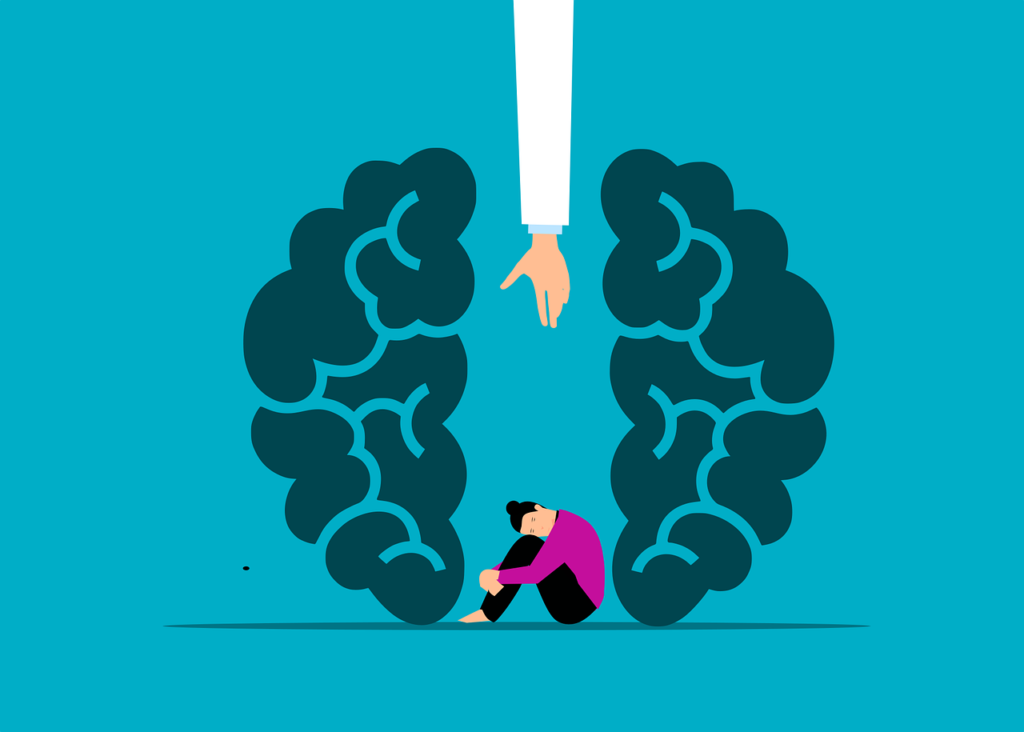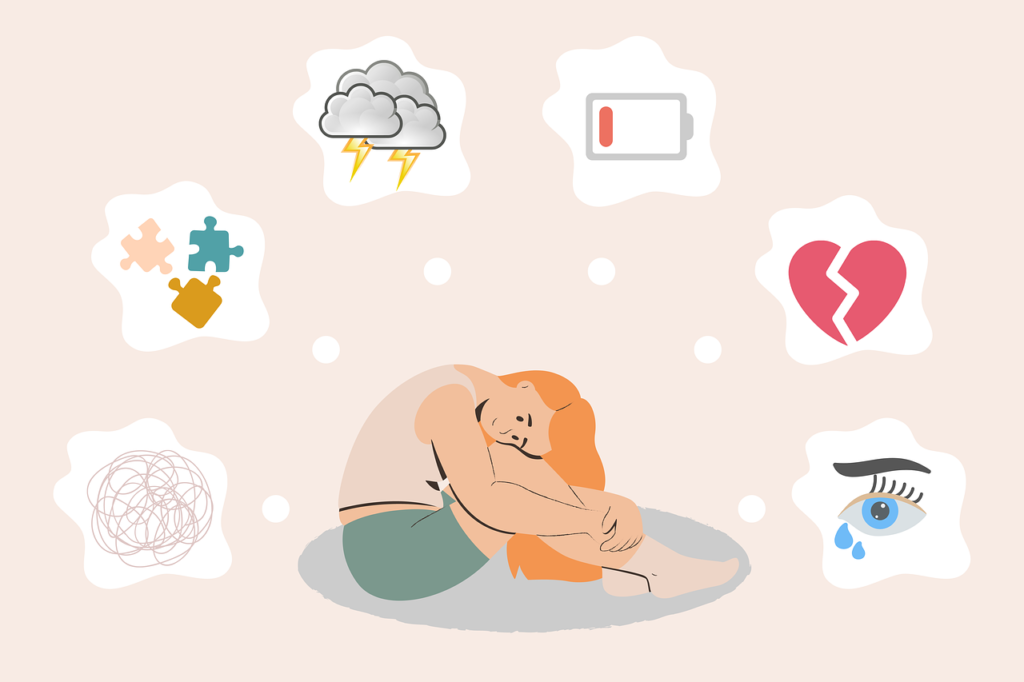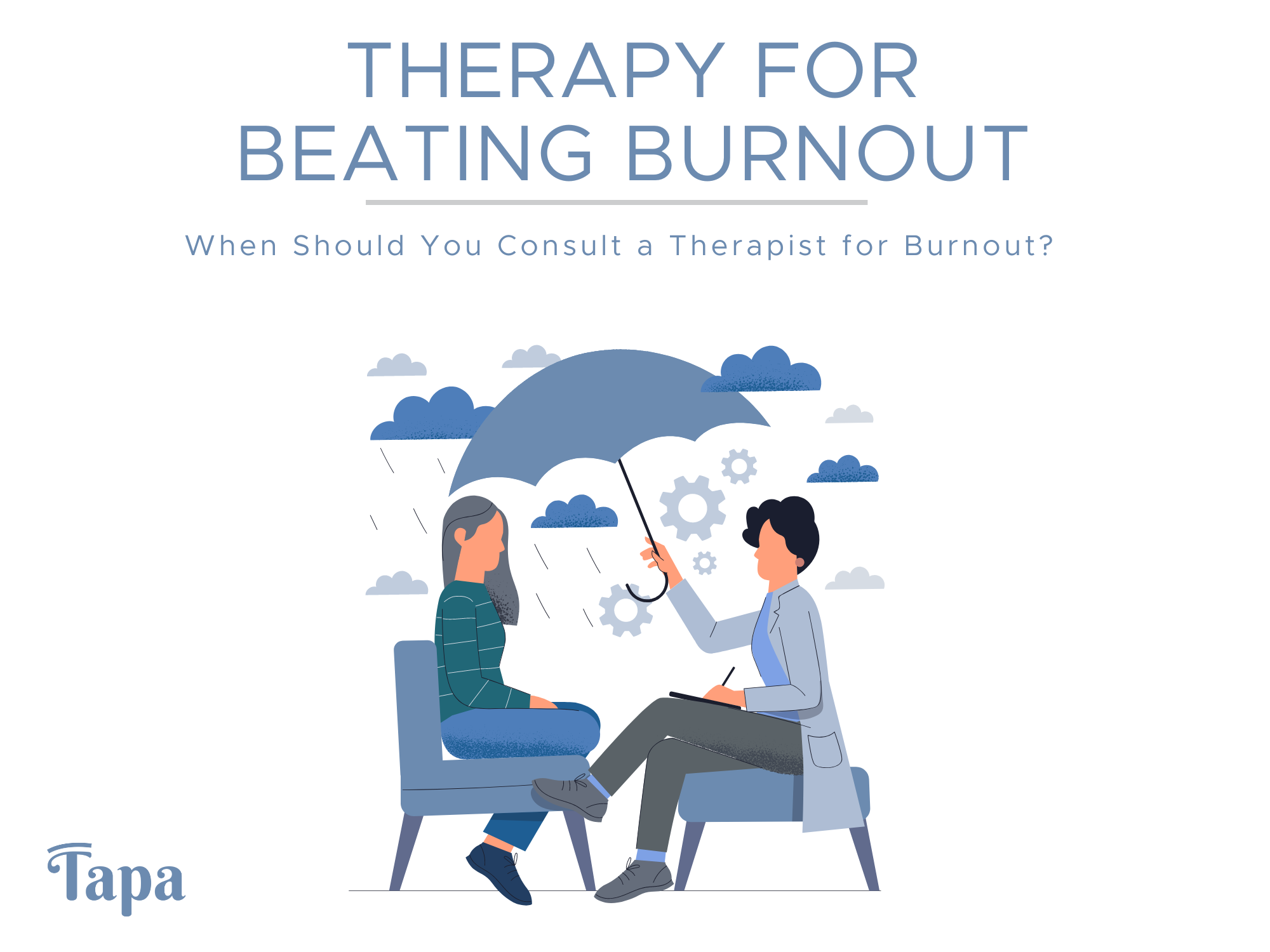Burnout is managable, but knowing when to seek professional help is crucial. Here’s a guide on when to consider a therapist for burnout, to make recovery easier.
Recognising the signs of Burnout
Burnout manifests in various ways, and recognising its signs early can prevent it from escalating. Common symptoms include:
– Persistent Fatigue: Feeling tired and drained most of the time, despite adequate rest.
– Emotional Distress: Experiencing feelings of helplessness, defeat, or detachment.
– Negative Outlook: Developing a cynical or negative perspective on work and life.
– Self-Doubt: Prolonged self-doubt, especially in areas of previous competence.
– Procrastination: Increased procrastination and indecision, leading to reduced productivity.
– Feeling Overwhelmed: Constantly feeling overwhelmed and struggling to manage tasks.
If you identify with several of these symptoms, it may be time to consider professional help.

When to Consult a Therapist
1. Persistent Negative Emotions
If you find yourself consistently feeling negative emotions such as irritability, cynicism, or hopelessness, it’s a sign that burnout is affecting your mental health. These feelings can become overwhelming and may not dissipate with simple self-care measures. A therapist can help you explore these emotions, understand their root causes, and develop coping strategies.
2. Inability to Function at Work
When burnout reaches a stage where it significantly impacts your ability to perform at work, it’s essential to seek help. This includes struggling to start tasks, meet deadlines, or maintain productivity levels. A therapist can assist in creating a structured approach to regain control over your work life.

3. Physical Symptoms
Burnout doesn’t just affect your mind; it can manifest physically. Unexplained headaches, stomach problems, and other physical complaints are common. These symptoms indicate that stress is taking a toll on your body. A therapist can help you address these physical manifestations through stress management techniques and lifestyle changes.
4. Dependence on Coping Mechanisms
If you find yourself increasingly relying on food, alcohol, drugs, or other coping mechanisms to manage your stress, it’s a clear sign that professional intervention is needed. These behaviours can lead to additional problems and complicate your path to recovery. A therapist can offer healthier coping strategies and support you in overcoming dependencies.
How Therapy Can Help
Therapy provides a safe space to explore your feelings and challenges without judgement. Here’s how it can assist you in recovering from burnout:
– Develop Coping Skills: Therapists can teach you practical tools and strategies to manage stress and prevent burnout from recurring.
– Gain Insight: Understanding the root causes of your burnout can help you address them effectively. Therapists can guide you in exploring these underlying issues.
– Set Boundaries: Learning to set and maintain healthy boundaries is crucial in preventing burnout. Therapists can help you establish these boundaries in your personal and professional life.
– Support and Validation: Sometimes, simply talking to someone who understands can be incredibly validating and relieving. Therapists provide a supportive environment to share your experiences and feelings.
Taking the First Step
Recognising the need for help is the first and often the most challenging step. If you’re feeling overwhelmed, remember that you’re not alone. Many people experience burnout, and it’s a valid reason to seek professional support. Consulting a therapist can help you regain control, improve your wellbeing, and restore balance to your life.

Source
In conclusion, if you’re experiencing persistent negative emotions, physical symptoms, or find yourself relying on unhealthy coping mechanisms, it’s time to consider consulting a therapist. Professional help can provide the tools and support you need to navigate and recover from burnout, allowing you to thrive both personally and professionally. Remember, seeking help is a sign of strength, not weakness.
Source- https://mywellbeing.com/ask-a-therapist/recovering-from-burnout

